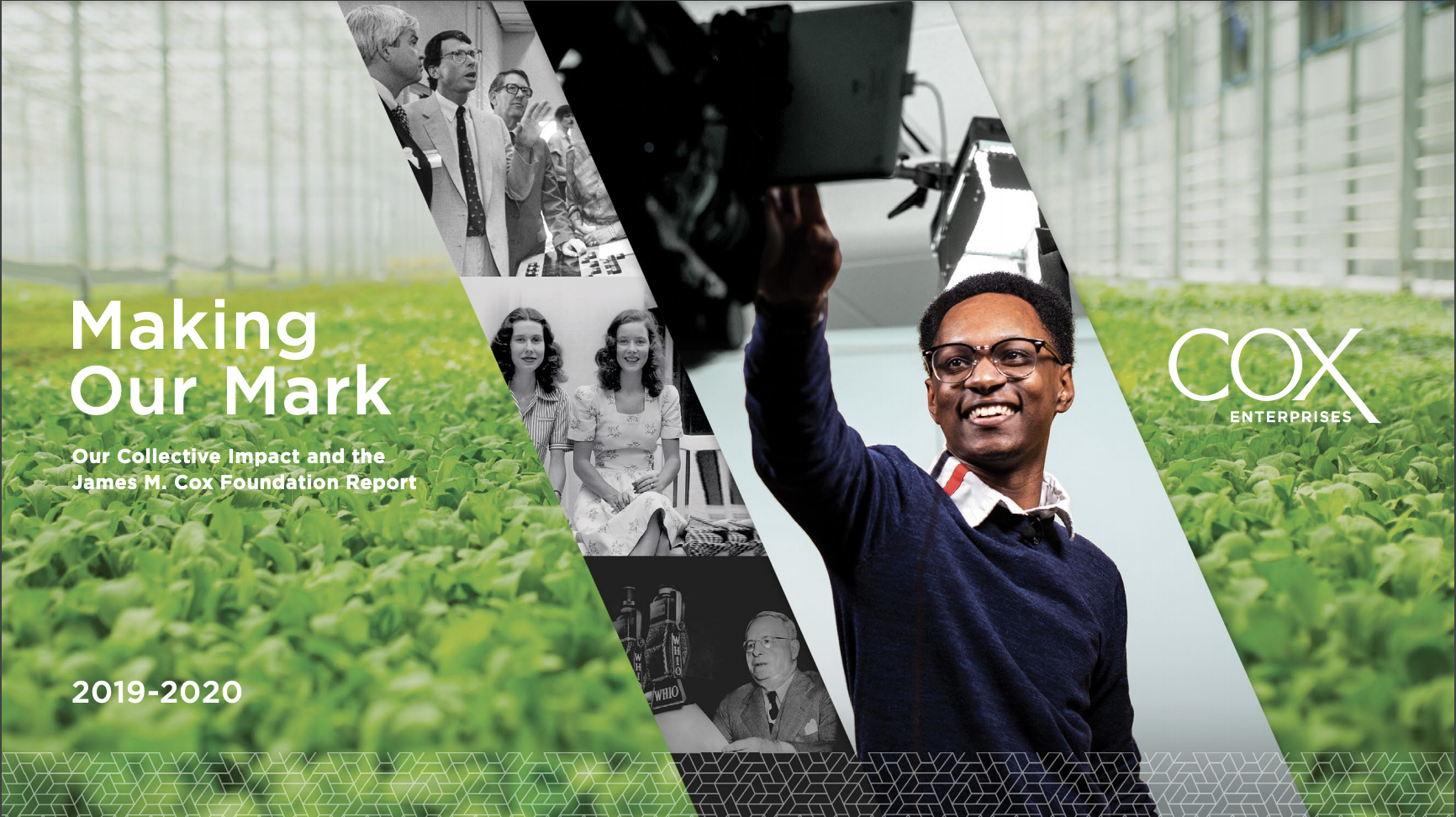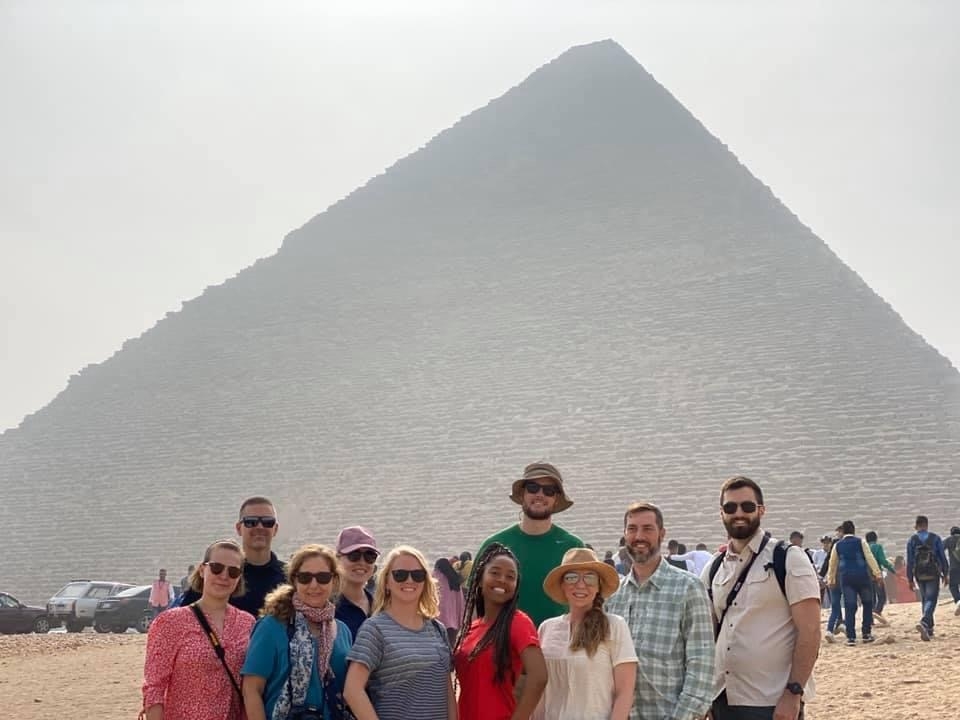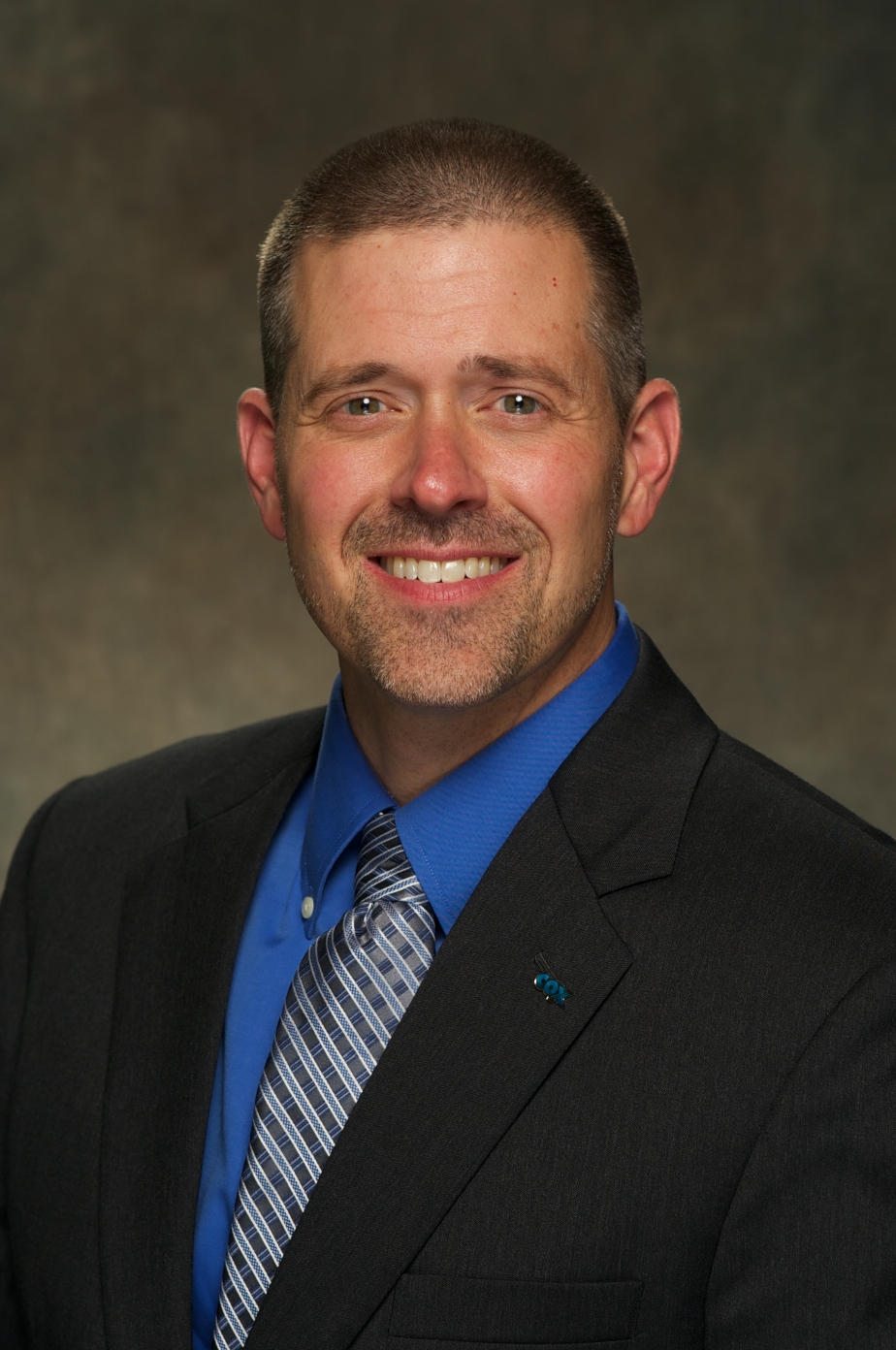Greening the telecommunications industry: XMNR alum and Cox Communications VP Jeff Merritt makes big strides
June 1, 2021

By Lindsay Key
Sustainable practices aren’t just good for the environment—they also save companies money. Executive Master of Natural Resources (XMNR) alum Jeff Merritt has seen this time and again in his role as Market Vice President at Cox Communications. Falling under the umbrella of Cox Enterprises, Cox Communications is the third-largest cable television provider in the United States, serving more than 6.2 million customers, including 2.9 million digital cable subscribers, 3.5 million Internet subscribers, and 3.2 million digital telephone subscribers.
Leading by example with ambitious sustainability goals
In 2007, Cox Enterprises launched Cox Conserves, a sustainability initiative, which included sending zero waste to the landfill by 2024 and becoming carbon and water neutral by 2034. Jeff, who took over leadership of the Virginia Cox Conserves Council in 2017, is optimistic that by enacting new trash-, water-, and energy-saving measures, the company can reach these goals and set an example for others.

Working in the telecommunications industry for more than 20 years, Jeff had always been interested in sustainability, and decided to pursue the XMNR in 2019. Around the same time, he was also noticing an acceleration in severe weather across the United States: more intense hurricanes on the east coast, winter storms in the Midwest, and wildfires in the west. Being able to communicate during severe weather is crucial, and Jeff wanted to learn more about changing weather patterns in order for Cox to be able to respond, adapt, and provide reliable service to their customers, many of whom live in areas affected by climate change.
“The program helped me better understand the climate crisis and how business leaders can be part of the solution by making small, practical changes that have a big impact,” said Jeff.
Cutting service fleet emissions by trimming idle time
Under Jeff’s leadership, one of the first steps that Cox Conserves took in Virginia to save energy was to decrease exhaust emissions from its customer service vehicles. Exhaust from gas and diesel-burning vehicles contains the greenhouse gas carbon dioxide, which, combined with other greenhouse gases in the atmosphere, is causing the planet to warm. Over time, Cox Communications plans to convert to all electric vehicles, said Jeff, but in the meantime, leaders decided to place meters in all employee vehicles to discourage idle time.
It’s easy for employees to get distracted while in between calls and forget to turn off the engine while they’re filling out paperwork, said Jeff. But the new meters placed in each car make it easy for managers to track how long each vehicle is idle, and can be used as a coaching tool when working with employees. Plus, if the idle time goes especially long—more than 30 minutes—the meters will turn the cars off.
“With this new method, we can pinpoint which employees are idling and work with them to find ways to cut back,” said Jeff. “So many of our employees want to make a difference for the environment and have really embraced this new tracking tool. It’s been a very positive partnership.”
Since the project launched in 2017, it has reduced vehicle idle time by 1.2 million minutes. “That’s nearly $200,000 worth of gas expense that we’ve avoided,” pointed out Jeff. “It just adds up so quickly. When you look at the savings at this scale, you realize that the individual changes that you can make really do have a compounding impact.”
Providing greener power and packaging
Another change that has made a big difference is switching the Cox Virginia market’s power source to green energy, said Jeff. Originally from the Virginia Beach area, he now lives in Roanoke, Virginia, close to where Cox has built a power generation facility on top of an old landfill, drilling down into the earth to take advantage of escaping methane gas.
“We use hoses to vacuum up the methane gas, run it through a generator, and then convert the methane to electricity,” said Jeff. “It does obviously put off a little bit of carbon dioxide, but the difference in methane versus carbon dioxide from a greenhouse gas perspective is a lot. We’ve seen it as an opportunity to make a difference in a positive way by converting bad gas into less bad gas. And by providing the power that way, we don’t have to source power from other fossil fuels.”
Another way that Cox has made a big difference is by changing the types of packaging that its telecommunication products come in. Instead of a glossy, white packaging material which required a lot of water to produce, company leaders switched to a less flashy but more environmentally-friendly paper packaging that is easier to recycle. Rather than printing equipment instructions, they now have customers get the instructions online through a QR code.
“To meet our no-trash-to-landfill goal, we realized that rather than just focusing on recycling as a company, we also needed to focus on the source of the materials in the first place and identify ways that we could be more environmentally friendly,” said Jeff.
Connecting with leaders in other industries and countries
In addition to the knowledge that the XMNR program provided about climate change and sustainable business practices, Jeff said that he found the networking component most advantageous. By getting to know the faculty and students in his cohort, he was able to make important connections with climate adaptation experts in areas outside of his own industry.
“I think one of the biggest takeaways from the program for me is that nobody’s going to solve this themselves,” he explained. “The amount of collaboration and partnership that is going to be necessary from all sectors—whether it’s government, business or NGOs—is huge.”

The XMNR program’s required Global Study experience also expanded his perspective to thinking about sustainability on a global scale. Jeff’s 2019 cohort went to Egypt and participated in an eye-opening boat tour of the economically vital, yet heavily polluted Nile River, among other action-learning activities. Shortly after his return, Jeff shared his reflections in a blog post for CLiGS.
“A lot of the work that I’m doing right now for our company is to understand how we can deal with the reality of climate change,” said Jeff. “And we can’t put all of our eggs in the mitigation basket. Even if we do actually slow climate change down, we’re not going to stop it, and we’re going to have to develop ways to deal with that.”



